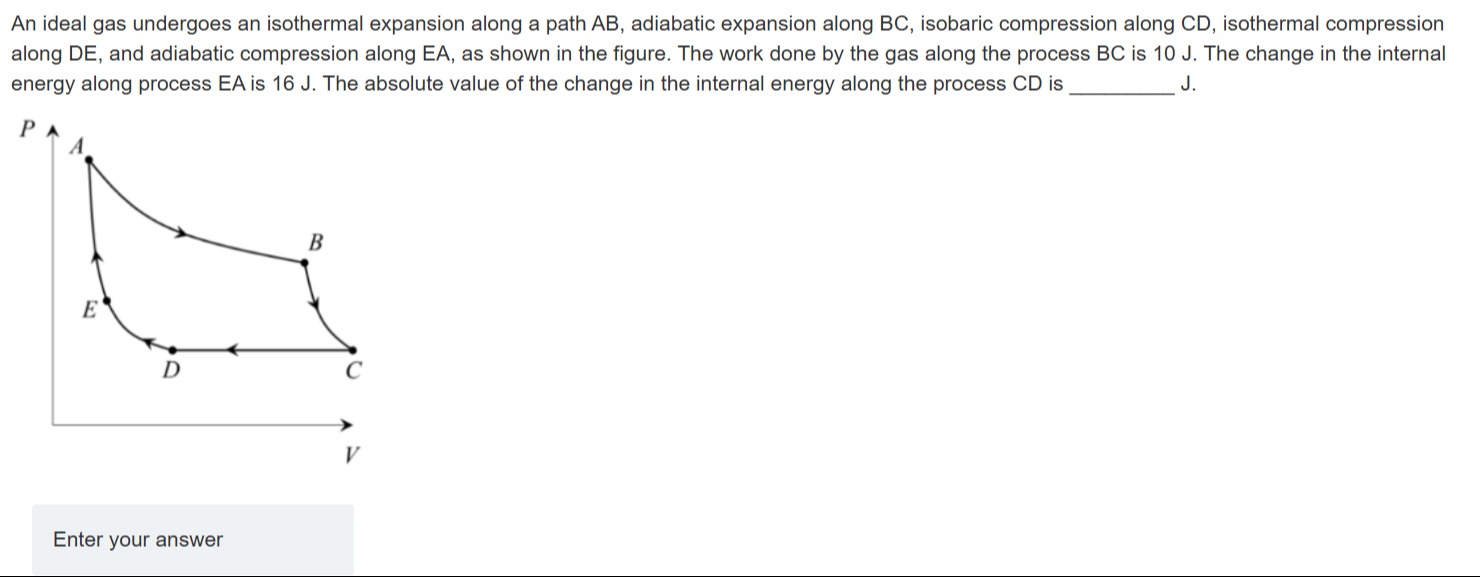Question
Question: An ideal gas undergoes an isothermal expansion along a path AB, adiabatic expansion along BC, isobar...
An ideal gas undergoes an isothermal expansion along a path AB, adiabatic expansion along BC, isobaric compression along CD, isothermal compression along DE, and adiabatic compression along EA, as shown in the figure. The work done by the gas along the process BC is 10 J. The change in the internal energy along process EA is 16 J. The absolute value of the change in the internal energy along the process CD is ______ J.

Answer
6 J
Explanation
Solution
For a complete cycle, the net change in internal energy is zero. Hence, summing the changes:
ΔUAB+ΔUBC+ΔUCD+ΔUDE+ΔUEA=0Given:
- Isothermal processes (AB and DE): ΔUAB=ΔUDE=0
- Adiabatic process BC: since WBC=10 J (work done by the gas) and Q=0, we have: ΔUBC=Q−WBC=0−10=−10 J
- In process EA (adiabatic compression), ΔUEA=16 J.
Now, substituting into the cycle equation:
0+(−10)+ΔUCD+0+16=0 ΔUCD+6=0⇒ΔUCD=−6 JThe problem asks for the absolute value of ΔUCD. Thus,
∣ΔUCD∣=6 J